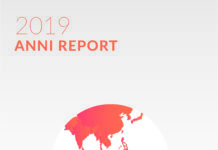A Regional Overview: Growing
Recognition of the Role of NHRIs
Asian Forum for Human Rights and Development (FORUMASIA),
ANNI Secretariat1
The Year 2010 in Context

There has been a growing recognition of the role of national human rights institutions (NHRIs) in Asia as potent tools for protecting and promoting human rights at the national level. Also, more and more human rights defenders (HRDs) from all over Asia recognize
the importance of ensuring the independence and effectiveness of NHRIs, if NHRIs are to support and protect them in their work of promoting and protecting human rights. It is believed that the wider engagement with the NHRIs by non-governmental organizations
(NGOs) in the region comes after the several years of forceful and active advocacy from civil society organizations (CSOs) on the issue of NHRIs.
There have been several events in 2010 regarding the establishment and performance of the NHRIs in the region that proved to be significant to the work of the ANNI.
In Japan, for example, in the August 2009 election, the Democratic Party of Japan (DPJ) captured a majority in the Lower House (House of Representatives), ending the half-century dominance of the Liberal Democratic Party (LDP). The DPJ election manifesto included the establishment of an NHRI. In March 2010, the ANNI, together with
its member the Citizens’ Council for Human Rights Japan (CCHRJ), organized its third regional consultation in Tokyo. The consultation was attended by key MPs, academics and CSOs, and the importance of establishing a NHRI in Japan that is in compliance with the Paris Principles was highlighted. Also, in April 2010, an MP’s union within the DPJ was established to specifically discuss the establishment of an NHRI in Japan. Also, Professor Yozo Yokota, a veteran human rights advocate, was appointed as the special advisor to the Ministry of Justice. Finally, on 22 June 2010, the Minister of Justice, the Senior Vice Minister and the parliamentary Secretary of the Ministry of Justice in Japan released the interim report, Establishment of a new Human Rights Remedy Agency. The interim report describes the bare bones of an NHRI in Japan, the picture envisioned by Ministry of Justice. After years of stagnation under the LDP, the establishment of an NHRI in Japan might be fast-tracked, due to the commitment of the DPJ administration together with the continuous pressure from the UN Human Rights mechanisms including Universal Periodic Review (UPR) and Committee on Elimination of Racial Discrimination (CERD). Nevertheless, there are also strong voices against an establishment of the NHRI among the MPs as well as civil society. Human rights organizations in Japan are skeptical about the Diet’s passage of the NHRI bill in the near future.
In Taiwan, the ANNI, together with its member the Taiwan Association for Human Rights (TAHR) organized its First National Workshop on 27-29 March 2010 in Taipei. The workshop was attended by representatives of the Control Yuan (the government branch responsible for audit or accountability in Taiwan), academics and CSOs. The workshop helped key stakeholders in Taiwan to better understand the significant role of NHRIs in the promotion and protection of human rights at the national level. ANNI was also able to build strong relationships with members and partners and various networks in Taiwan on this issue. Then in May 2010, President Ma Ying-Jeou announced the establishment of a consultative commission on human rights. As a result, the Human Rights Committee was re-established under the President’s Office on 10 December 2010, the International Human Rights Day. The mandate of Commission is to advise the President on human rights policies, and supervise the State departments to produce the first national state report on the International Covenant on Civil and Political Rights (ICCPR), and International Covenant on Economic, Social and Cultural Rights (ICESCR). With these developments, it is hoped the establishment of a full NHRI in Taiwan can be expected in the near future.












